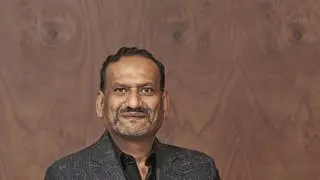From the well-appointed meeting room on the eighth floor of the Sanmar group’s headquarters one gets a breathtaking sweep of a slice of Chennai city.
Cars, looking like toys, zoom across a flyover that has sprung up in the past decade. Next door is the ‘Academy’, the hoary seat of music. In the far distance one can see the shimmer of the Bay.
For 40-year-old Vijay Sankar, the slim Deputy Chairman of the group, in the distance he can now see light at the end of a long tunnel. The chemicals business of this Rs 5,500-crore group has gone through some rough times, so much so that its flagship, Chemplast Sanmar, a producer of PVC and piping systems, recently delisted itself from the exchanges. In FY 2012, it posted sales of Rs 2,130 crore and a net loss of Rs 70 crore, even though it made operating profits of Rs 200 crore.
Heavy investment phase
Mr Sankar attributes the lows the group went through to the heavy investment phase for the company chiefly involving the setting up of a greenfield two lakh tonne PVC plant at Cuddalore, Tamil Nadu.
In the past five-six years, he estimates that Chemplast would have invested around Rs 1,400 crore on this and a few other smaller projects.
“It should take another year for these investments to play themselves out. One of the main reasons for our losses was the huge capital cost on new plants. The chemicals business has turned around quite nicely in the past six-seven months. All the plants are running full now, but margins (of commodity PVC) are still under pressure,” he explains.
Mr Sankar points out that in a large commodities business, once the heavy investment phase is over one only has to wait for the cash flows to improve.
“The existing investments are all pretty much giving us the full returns. And the only investment we have to make is around Rs 90-100 crore in converting our Mettur facility to a speciality PVC plant,” he adds.
The Cuddalore facility will be expanded to three lakh tonnes a year capacity soon, but this is more a ‘debottlenecking’ exercise and only requires marginal investment.
Delisting
Explaining the rationale for delisting what is the group’s flagship company (the group has a clutch of four profitable engineering companies, each with an overseas partner, apart from investments in foundries in India and the US and in shipping), Mr Sankar says the promoters have pumped in a lot of equity into the company through rights issues and loans. Nor did the company make any dividend pay out for the past 12 years, so all the internal accruals have been ploughed back.
“We controlled 75 per cent of the company and when it needed more capital it was unable to attract investment, and we brought in the capital. We felt it is better to delist and fully fund the ventures,” says Mr Sankar. The government's minimum public shareholding norms require listed companies to have a promoter holding of no more than 75 per cent by next year.
Egypt project
The next big expansion slated is in Egypt where it has a two-lakh-tonne PVC plant, which it acquired as a chlor-alkali facility and expanded in 2007.
This plant has been put up by group company, TCI Sanmar Chemicals. After spending nearly $1 billion, a part of the integrated facility was started in 2010.
Caught up in Egypt’s Arab spring, the plant was damaged and remained shut for several months.
Production resumed in November last and the plant is fully operational now. Mr Sankar said this plant services the high-demand Egyptian and Turkish markets. “We intend doubling capacity to 4 lakh tonnes here for which we may need $300 million. This would be done in the next couple of years,” says Mr Sankar.
PVC capacity
Elaborating on the industry, Mr Sankar says the Indian PVC makers’ total capacity is around 1.2 million tonnes a year. China, in contrast, has an installed base of 20 mt! While he concedes that demand in India outstrips local players’ output, Mr Sankar says the import duty of five per cent, among the lowest in the world, has kept the tap open for free imports of PVC from all over. While it’s not difficult to sell what one produces, the issue is of margins.
India consumes two million tonnes of PVC a year. “Yes, demand outstrips supply,” he explains, “but people are not investing because they are not seeing returns, margins are just not there”.
But Mr Sankar, the fourth-gen scion of one of Tamil Nadu’s older business families, is aware of what he needs to. “Margins in the PVC business are an issue, but we need to meet them. Larger capacities will allow us to absorb overheads better. We need to source better and produce efficiently,” he concludes.








Comments
Comments have to be in English, and in full sentences. They cannot be abusive or personal. Please abide by our community guidelines for posting your comments.
We have migrated to a new commenting platform. If you are already a registered user of TheHindu Businessline and logged in, you may continue to engage with our articles. If you do not have an account please register and login to post comments. Users can access their older comments by logging into their accounts on Vuukle.